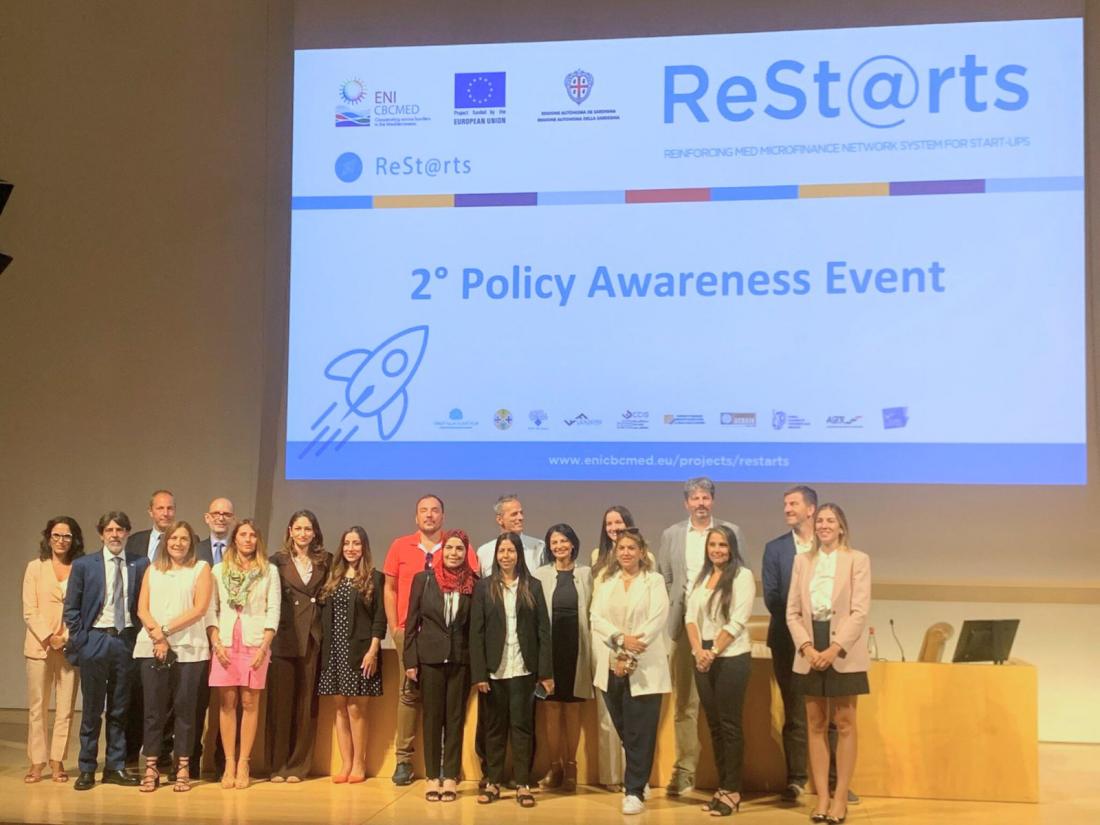ReSt@rts presents the Marketplace Platform during its Policy Awareness event in Rome

In the recent ReSt@rts meeting held in Rome, the steering committee of ReSt@rts project met in person, consisting of representatives from six partner countries: Italy, Lebanon, Tunisia, Palestine, Cyprus, and Greece. Their purpose was to discuss the project's progress and outcomes. The central focus of these discussions was the Marketplace Platform that has been active and used for hosting webinars aimed at microfinance providers and aspiring entrepreneurs. This initiative aims to empower entrepreneurs and communities across the MED region.
This platform creates a digital meeting space for microfinance stakeholders. It enables entrepreneurs to showcase projects, raise funds with flexibility, and discover financial opportunities and consulting services for youth. The platform will continue operating even after the project ends, which means that it will continue to empower the youth and others in the region for a long time to come.
During the steering committee meeting, Leaders International, responsible for project communications, reported on their achievements for outreach across various channels, highlighting successful campaigns, and showcasing best practices and lessons learned based on metrics and insights. Partners also spoke of upcoming communications and outreach activities to amplify the project's key learnings.
Partners from the six Mediterranean countries expressed satisfaction with the collaborative success achieved. This project showcases the potential of cross-border cooperation, demonstrating that when nations unite for a common goal, remarkable results are attainable.
On the second day of the gathering, partners convened for the Second Policy Awareness Event in Rome, an open forum withholding various panels for public policy experts and stakeholders. Distinguished experts from Italy, Lebanon, Palestine, Cyprus, Greece, and Tunisia enriched the network of cooperation and knowledge sharing.
During the event, these experts presented insights from recent research findings on microfinance in their regions. They discussed challenges faced by local microfinance industries and offered data-driven recommendations to improve access to finance for non-bankable youth and women.
The 2nd policy awareness event was a dynamic exchange of ideas, experiences, and knowledge. It demonstrated the strength that arises when nations combine resources and expertise to address access to finance.
In conclusion, the Rome meeting emphasized the commitment of dedicated project partners to foster cross-border cooperation that makes a tangible difference. With EU funding as a cornerstone, the project exemplifies how collaborative efforts can lead to a brighter and more inclusive future, where access to finance is extended to those who need it most.









